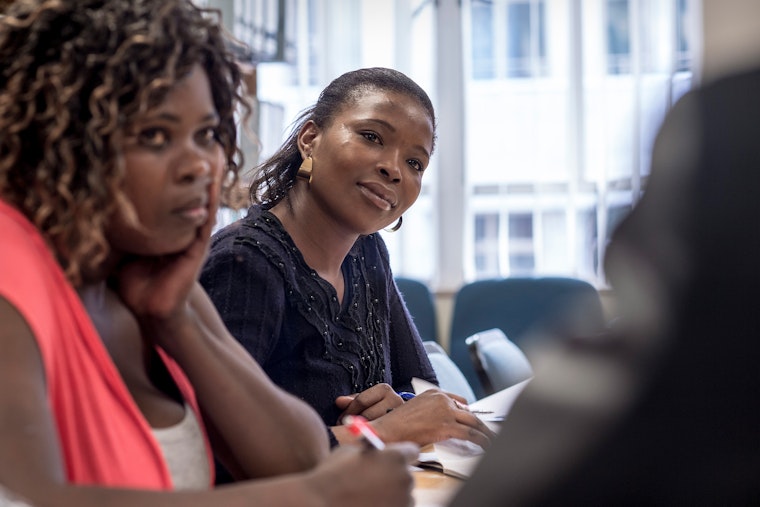Q&A: Lawyers on the Margins Find Creative Ways to Help Their Clients—and Each Other

The Lawyering on the Margins initiative was established in 2011 to bring together lawyers from around the world working with marginalized communities. In 2016, the Open Society Foundations transitioned leadership of the project to Release—a UK-based charity focusing on legal aid and advocacy around drug laws. We caught up with Kirstie Douse, head of legal services at Release, to learn more about her future plans for the initiative.
What makes Lawyering on the Margins important?
Marginalized communities around the globe—from LGBTQI people to sex workers and people who use drugs—face police brutality, imprisonment, and even the death penalty because of who they are or the nonviolent things they do. These communities have suffered historical injustice, discrimination, and human rights abuses. For that reason, it’s even more pressing that we work to protect and advance their rights.
With the worrying trends the world faces today, especially the rise of fear-driven politics and resurgent social conservatism, there is a very real risk that we could see even more draconian laws enacted against these communities. As a result, the need for specialized legal assistance to marginalized groups is greater than ever.
What form does this assistance take?
Legal interventions for people from marginalized communities can include a host of activities, such as training community-based paralegals, integrating legal services into existing healthcare settings, supporting grassroots campaigning and engagement, strategic litigation at a national level, and developing technological tools to empower people to advocate for their own rights.
Lawyering on the Margins brings together people working on these issues, allowing them to share innovative approaches and build vital peer-support networks.
How can Lawyering on the Margins help those working in hostile or challenging environments?
Providing legal services means working under pressure, no matter the setting. However, we face additional challenges when representing vulnerable groups in environments that limit their rights.
Unjust and oppressive legal systems can make representing marginalized groups a lonely, disheartening and stressful job, something that peers working in other areas often have difficulty understanding. That’s where the insight, advice, and coping mechanisms provided by colleagues in the network make such a difference.
Lawyers in this field often have to develop creative methods in addition to more traditional approaches to legal work. So the opportunity to learn from each other’s experiences also helps colleagues participating in the initiative better serve their clients and communities.
How does Release envision the future of Lawyering on the Margins?
Release is incredibly excited to be taking Lawyering on the Margins forward, and will be working with our partners LBH Masyarakat to convene a gathering in Indonesia in 2018. We chose the meeting location as a means to highlight and oppose the use of the death penalty for drug offenses; Indonesia is one of the countries where this still occurs.
The meeting will focus on topics like providing community legal aid directly to people affected by draconian laws, developing policy initiatives to reform those laws, conducting strategic litigation, and building communications strategies to challenge the stigma faced by marginalized communities.
Having attended two of the previous meetings, I can definitely say that we see collaboration and consultation as an invaluable part of the program, one that we will endeavor to continue.
How can interested lawyers get involved?
Information about the application process for the 2018 meeting in Jakarta will be available in April 2017. In the meantime, we are organizing a workshop prior to the Harm Reduction International Conference in May 2017.
The workshop will emphasize the value of access to justice work as part of the harm reduction response to drugs and drug policy, and open discussions on the consultation process for the 2018 meeting. If you are interested in attending the workshop please contact ask@release.org.uk.